Courage: Let the Queens Show Us How It's Done
Comparing Queens Vashti and Esther to two recent examples of antisemitism in my life.
First of all, chag Purim sameach AND happy Pi Day! I hope at least one of you out there feast on little pie hamantaschen, like these Key Lime Pie Hamantaschen. Also, please note the name of that baking blog is Cinnamon Shtick. 👏
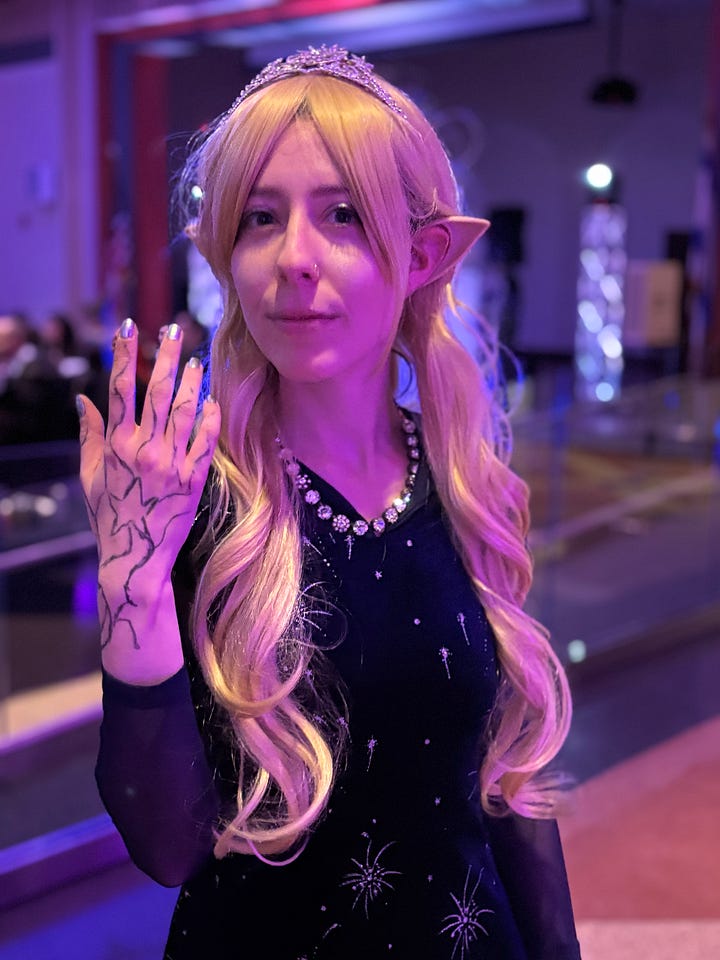
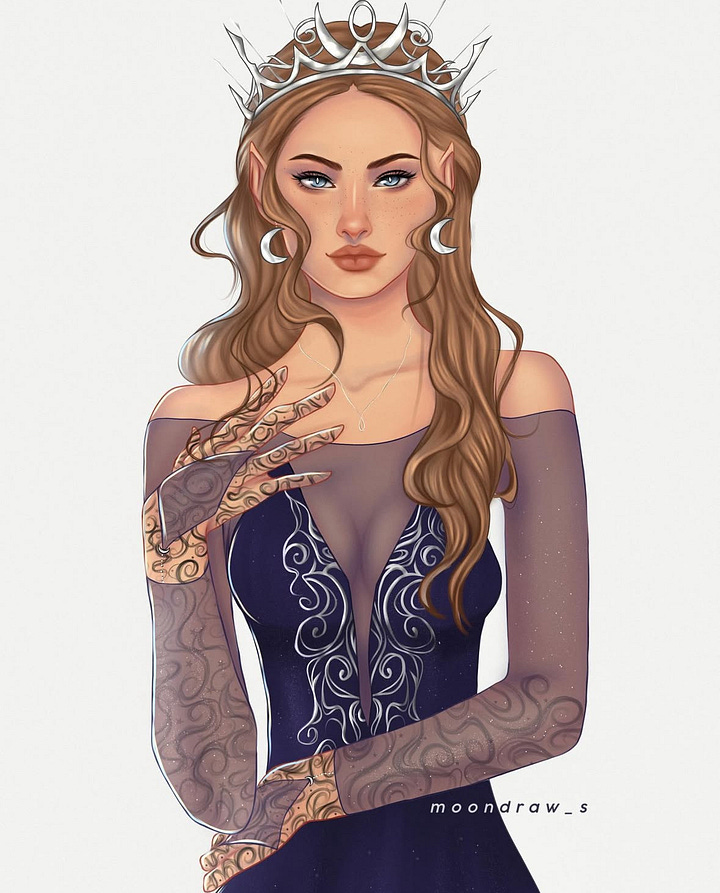
Now that the fun stuff is outta the way… I try not to have too many Drops about antisemitism, but it’s a topic that has come up in conversations lately: in my monthly Jewish ideas class, at work, around the Shabbos table, and in texts with friends. The most pressing of these is the last one because this week, just 10 blocks south of me, a friend not only had her mezuzah—but those of her neighbors—ripped off their doorposts and thrown down the hall, left in shatters. Yup.
Plus, antisemitism is related to the story of Purim. For a refresher, click here.
In this story, we see two distinct models of resistance (I know that’s a loaded word these days but bear with me) from Vashti and Esther. Vashti’s defiance (which I left out in my old summary, my bad!) is immediate and public: when King Ahasuerus commands her to appear before him naked at court, she refuses, facing exile and possibly execution as a result.
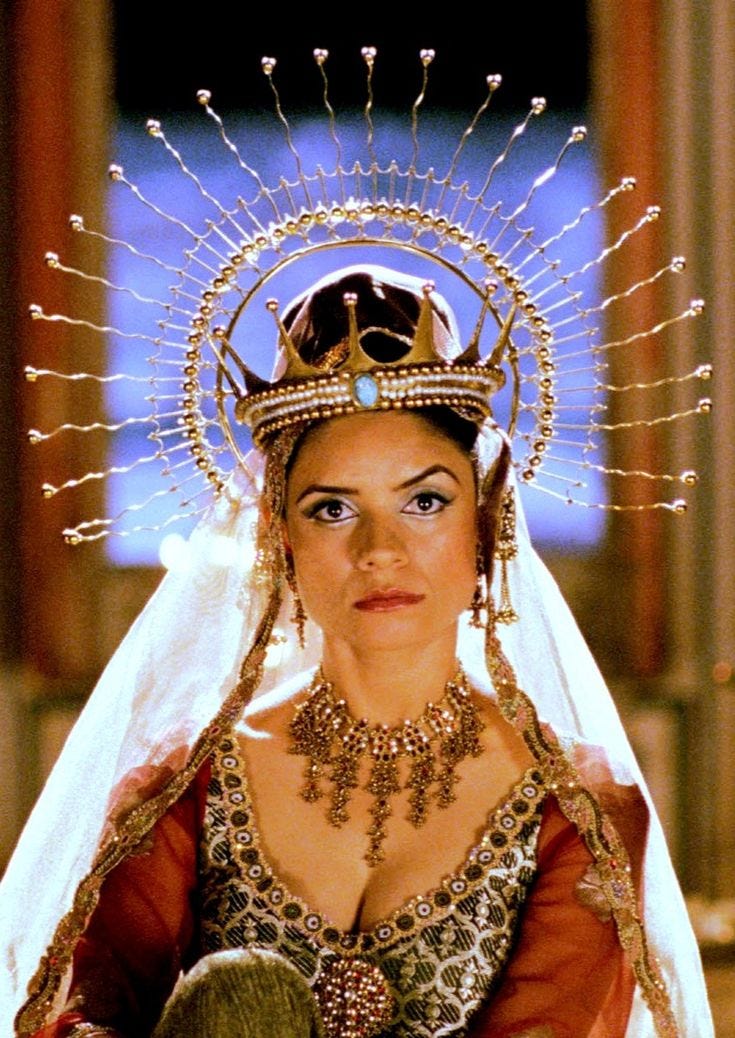
Esther, on the other hand, conceals her identity for much of the story. Only when the moment is right does she reveal herself as a Jew, using calculated strategy and timing to save her people.
Both methods require bravery, a deep sense of self-awareness, and an unwavering commitment to their principles.
This week, I’ve been reflecting on these two leadership styles in the context of recent encounters with antisemitism.
Encounter 1: Feeling Targeted at Target
At a recent Shabbat dinner, I met a fierce and proud Jewish woman—let’s call her Malka—who was telling us a story that took place at her neighborhood Target. Reminder: this was in New York City.
While standing in line there, Malka overheard a teenage girl loudly say something vile about Jews. I don’t feel like repeating it, but it had to do with supporting that failed artist from WWII with the ugly mustache. Unsure whether or not the comment was directed toward her, Malka whipped around and stared down the girl and her silent friend out of pure shock and disbelief. Shook up, she proceed to check out in line.
Then, on the way out of the store, Malka happened to be standing behind the two girls on the ascending escalator and felt like she had to say something to them and would never forgive herself if she didn’t address their antisemitism.
“What you said about Jews back there was awful and you should be ashamed,” Malka told them. The girls’ response? One of them half-apologized for her friend’s words by saying, “I know, I tell her she shouldn’t be saying things like that in public.”
“She shouldn’t be saying things like that ever,” Malka said in defiance. At the top of the escalator when they were about to part ways, Malka overheard the girl who made the original comment say, “Ugh. Jews,” with an eye roll. Yup.
In Queen Vashti-like fashion, Malka took a stand, calling out strangers for their hatred. After the initial shock, there was really no hesitation; like Vashti, Malka refused to tolerate their words and pushed back. Hearing this story, I was so proud of Malka. I admired her strength and her ability to reject their antisemitism without second-guessing herself. I was almost envious. Which brings me to my next story…
Encounter 2: Eurovision? More Like Zero-vision
A few weeks ago, I was traveling around Iceland (an Icelandic Drop awaits!). While on a classic full-day tour of the Golden Circle, I spent the day getting to know a couple from the UK, chatting about travel, culture, and work. Then during lunch, I casually asked if they were into Eurovision, because I was in vacation mode where I think the world is perfect and grand, and I happen to love Eurovision.
“Oh yeah, we love Eurovision! But we boycotted it last year.” Pause. “Because of Israel.”
I froze. I said nothing, really. Just a “Ohh, hmm.” I was dumbstruck not just by her words, but by her confidence in her assumption that I would agree. And then, just like that, the conversation moved on.
Yeah… not exactly an Esther moment for me. No big reveal of my Jewish identity, hidden when I took off my Star of David before stepping into the hot springs. No at least playing dumb, asking why she made that choice, especially since, if she really hated Israel that much, she would boycott Eurovision every year. Or being honest and saying, “Look, I feel differently, but I want peace between Israelis and Palestinians, and in a perfect world, I would support two states.” Not even a mention of how I thought Eden Golan, last year’s Israel representative, was an objectively amazing singer.
I was also having a hard time processing this person’s smugness at boycotting Israel when we just discovered the horrible news of the Bibas family that week. Children strangled to death and a country forced into a war it didn’t start… but 10 points to this person for not turning on her TV! 🥴
I’ve been frustrated by my silence ever since. Yet Purim reminds me of the importance transformation, of how Esther goes from silence to stepping up. I didn’t speak up for the Jewish people in that moment, didn’t educate those strangers or show them that not everyone shares their perspective.
But one day, my Esther moment will come should I ever need it, G-d forbid.
✏️ Shabbat Prompt
Purim reminds us that courage takes different forms. Vashti shows us the power of immediate defiance. Esther teaches us that revealing ourselves at the right time can make a difference. When did you take a stand in your life, either defiantly or quietly? Feel free to journal, reflect, or write your answer in the comments! Purim sameach! And Shabbat Shalom,

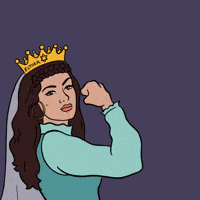
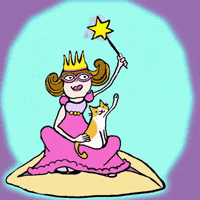




I had a similar encounter many years ago at a work conference. I was talking to a colleague who used the term Jew-them-down. I knew responding publicly at that moment would impact and be focus of the 3 day conference. I didn’t want to make it public but I could not let him get away with what he said
So I waited until Monday morning when we were back at work, went to his office and closed the door. I reminded him of the comment he made at the conference and told him it was antisemitic. He said he didn’t realize it was and would be careful in the future. We’ve been friends ever since. We are both retired and get together for lunch now and then.
You can take a stand with anti-semites and say your say. Does it change them? No. But it will make you feel better for having said what you believe needed to be said. Saying nothing will perhaps make you feel a bit of a coward for remaining silent. Comfort yourself by telling yourself that they will not change so it was not worth speaking up. Essentially, then, do what feels right for you at any given instance when you confront an outspoken anti-semite.